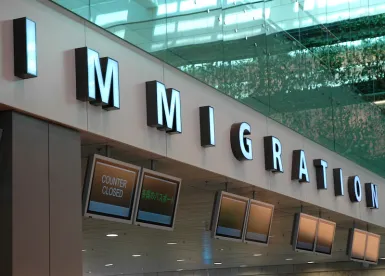As the cap H-1B registration process for fiscal year (FY) 2023 closes, and the lottery is about to begin, this might be a good time to look back at the results of the cap registrations from past fiscal years.
In FY 2020, 274,237 H-1B registrations were filed and 124,415 were selected to fill the 85,000 spots. That is a 45% selection rate overall:
-
USCIS initially selected 106,100
-
USCIS conducted a second round in August 2020 and selected an additional 18,315
In FY 2021, 308,613 registrations were filed and 131,970 were selected, meaning a 32% selection rate overall:
-
USCIS initially selected 87,500
-
USCIS conducted a second round in July 2021 and selected an additional 27,717
-
USCIS conducted a third round in November 2021 and selected an additional 16,753
USCIS determines the number of registrations it will accept based on historical data about the number of petitions that must be selected and adjudicated to fill the 85,000-cap limit. But, since 2020, there have been circumstances that seem to have changed the calculations – leading USCIS to conduct additional selections.
Some critics of the electronic registration system have suggested that, because registrations are so easy and inexpensive, additional registrations are filed by petitioners to increase the chance of selection and not all those selected result in filed petitions. Others have suggested that more than one company files for the same individual (sometimes in a coordinated effort) and, ultimately, if selected more than once, only one petition is filed.
This year, perhaps in light of those criticisms, USCIS is focusing on petitioners who might be attempting to unfairly increase the chances of selection by gaming the system.
A certification has been added to the 2023 registration process stating:
I further certify that this registration (or these registrations) reflects a legitimate job offer and that I, or the organization on whose behalf this registration (or these registrations) is being submitted, have not worked with, or agreed to work with, another registrant, petitioner, agent, or other individual or entity to submit a registration to unfairly increase chances of selection for the beneficiary or beneficiaries in this submission.
If USCIS discovers the attestation was false, it will find that such registrations were not properly submitted and, therefore, are ineligible. Denials or revocations also could follow, and false attestations could lead to appropriate investigations.
Of course, COVID-19 has also been a factor since 2020 and some registrations may have been (and may still be) submitted this year (and selected) that do not result in petitions filed because petitioners’ financial circumstances and conditions change and the potential H-1B employee may no longer be needed. Legitimate changes in circumstances should not result in investigations, but employers should be prepared to explain why a selected registration did not result in a petition filed, especially if there are more than a few such instances for any single company.




 />i
/>i

